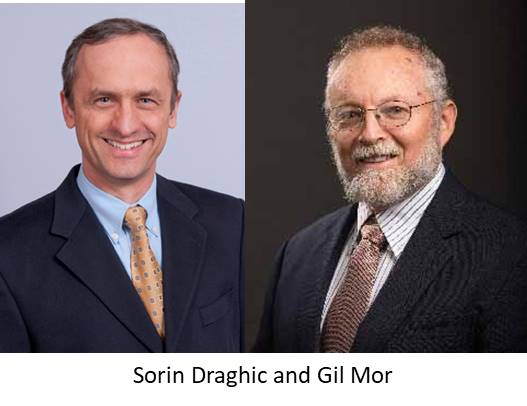Advaita Bioinformatics, an Ann Arbor-based company spun out of Wayne State University, announced that it has identified methylprednisolone, a generic FDA-approved corticosteroid typically used to treat inflammation and other common ailments, as a drug that can improve outcomes for patients critically ill with COVID-19.
To confirm the drug’s efficacy, an independent study led by Mayur S. Ramesh, M.D., an infectious disease specialist at Henry Ford Health System, showed that  more than 200 patients given a short course of methylprednisolone responded well, with significantly reduced transfers to intensive care, requirements for ventilation and deaths.
more than 200 patients given a short course of methylprednisolone responded well, with significantly reduced transfers to intensive care, requirements for ventilation and deaths.
Using Advaita's patented intelligent software, iPathwayGuide, researchers uncovered the necessity of modulating the body’s immune response to the virus. They analyzed data from experiments in which human lung cells were treated with SARS-CoV2 and other viruses, as well as experiments in which COVID-19 infected lungs were compared to healthy lung tissues.
Sorin Draghici, Ph.D., founder of Advaita and professor of computer science and associate dean for innovation and entrepreneurship in the Wayne State University College of Engineering, noted that the findings indicate that not all drugs in the same class will exhibit similar results. Other steroids, such as prednisone or dexamethasone, were not found to be effective against COVID-19, nor were other medications currently being investigated.
“Advaita can conduct a structured, repeatable analysis of many drug candidates, screening them against the genes and pathways activated by coronavirus. This isn't just a difficult-to-explain AI finding, but a prediction based on putative mechanisms of action,” Dr. Draghici said. “Hearing that the drug we identified actually saved lives was extremely rewarding.”
Last month, Advaita launched a crowd-sourcing initiative to involve scientists in a community effort to fight COVID-19. The group has been analyzing data sets from researchers around the globe to better understand the mechanisms of COVID-19 and try to identify existing drugs that could be repurposed to treat the disease.
“We have a few other drugs that are predicted to be effective and we are seeking additional clinical partners to demonstrate their validity,” Dr. Draghici said. “The fantastic work done at Henry Ford by Dr. Ramesh and his colleagues proved that our approach has clinical value.”
“We were very excited to see the very positive clinical results provided by methylprednisolone,” Dr. Ramesh said. “We are looking forward to trials involving other drugs predicted by iPathwayGuide.”
Advaita’s technology is based on Dr. Draghici’s research at Wayne State and has been supported by more than $4.5 million in grants from the National Institutes of Health, the National Science Foundation and other agencies. The company provides its bioinformatics platforms to over 18,000 users worldwide.
A paper summarizing the Henry Ford Health System study has been submitted to a leading journal for peer review.
"It is very exciting to be able to bridge biology, computational analysis and clinical data to improve patients' care," said Gil Mor, M.D., Ph.D., scientific director of the C.S. Mott Center for Human Growth and Development and the John M. Malone Jr., M.D. Endowed Professor of Obstetrics and Gynecology at the Wayne State School of Medicine and senior author of the submitted paper. "This approach will have a major impact on drug discovery by shortening the discovery phase.”
Advaita will continue to provide software and consultancy work free of charge during the COVID-19 crisis.